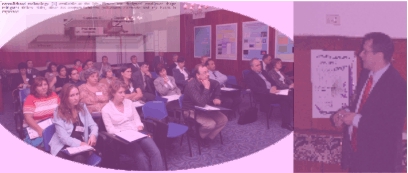
|
Noel Rodriguez received the B.Eng. (with first national award) and M.Eng. degrees in Electronics Engineering from the University of Granada, Granada, Spain, in 2004 and 2006, respectively, and the double Ph.D. degree from the University of Granada and the Grenoble National Polytechnic Institute, Grenoble, France, in 2008. During his Ph.D. degree study, he spent one year at the Institut de Microélectronique, Electromagnétisme et Photonique, Minatec facilities, Grenoble, where he worked on electrical characterization techniques with Prof. Sorin Cristoloveanu.
He is currently an Associate Professor with the Department of Electronics and Computer Technology of the University of Granada where he is also managing the electrical characterization activities in the Nanoelectronics Characterization Laboratory. Since 2010 he is member of the Technical Program Committee of the European Solid-State Device Research Conference. His research interest includes simulation, modeling, and characterization of advanced silicon-on-insulator devices and single-transistor dynamic random-access memory cells. He is co-holder of five patents related to multi-body 1T-DRAM technology and he has authored or coauthored more than 60 papers related to these subjects. |
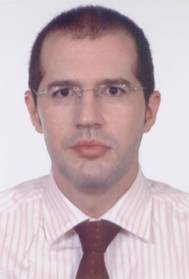 |
Univ.-Prof. Dr.-Ing. habil. Ivo W. Rangelow Director Institut für Mikro- und Nano-Elektronik (http://www.tu-ilmenau.de/mne/) Ilmenau University of Technology (www.tu-ilmenau.de) Fakultät für Elektrotechnik und Informationstechnik FG Mikro- und nanoelektronische Systeme (www.tu-ilmenau.de/mne-mns)
Area of activities: Development of integrated micro- and nanosystems based on CMOS processes in combination with post-processing 3D-micromachining and thin film technology, Proximal Probes Technology, AFM probes based on whiskers, Nanolithography with proximal probes, IR technology, Nanofluidic, Advances Plasma Processing for micro- and nanosystems, Post-processing of industrial CMOS wafers to release, e.g., membranes, cantilevers, sensors, Photon, Ion and Electron based Lithography for micro- and nanosystems, Research on masks for Photon, Ion and Electron based technologies, Development of CMOS-compatible micromachining techniques. Cantilever probe sensor arrays featuring piezoresistive deflection sensors and integrated electrothermal actuator for high speed parallel scanning applications in proximal probe technology, ultrathin cantilevers (bellow 100nm). Combined piezoresistive SNOM/AFM probes, microprobes for scanning capacitance microscopy and scanning tunneling microscopy, multipurpose piezoresistve sensors for AFM and lateral force microscopy. Dynamic force microscopy in liquids. Thermal nano-probe: combination of CMOS technology, bulk and surface micromachining, focused ion beam technology and electron beam-induced deposition. Cantilever based infrared sensors and 2D-sensor arrays for presence detection and low-cost thermal camera. Single nanometer lithography. |
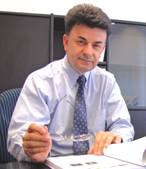 |
Laurent Arurault received his Ph.D. in electrochemistry from the Polytechnic National Institute of Grenoble in 1992 and then worked in industrial research centres for four years. He is now a professor in the materials research centre CIRIMAT in the Paul Sabatier Scientific University in Toulouse, France. He is active in materials science, especially about surface treatments (anodizing, impregnation, colouring, sealing) of light alloys (Al, Ti, Mg), as well as the preparation of cerium based coatings. L. Arurault is also consultant for some companies, mainly for aeronautic, space and sensor applications. |
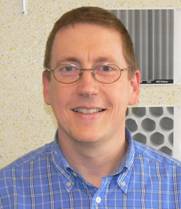 |
Florin Udrea is a professor in semiconductor engineering and head of the High Voltage Microelectronics and Sensors Laboratory at University of Cambridge. He received the diploma of Engineering from Politehnica University of Bucharest, the MSc in smart sensors from the University of Warwick, UK, in 1992 and the PhD degree in power devices from the University of Cambridge, Cambridge, UK, in 1995. Since October 1998, Prof. Florin Udrea has been an academic with the Department of Engineering, University of Cambridge, UK.. He is currently leading a research group in power semiconductor devices and solid-state sensors that has won an international reputation during the last 15 years. Prof. Udrea has published over 250 papers in journals and international conferences. He holds 50 patents with 30 more patent applications in power semiconductor devices and sensors. Prof. Florin Udrea co-founded two companies, Cambridge Semiconductor (Camsemi) and Cambridge CMOS Sensors (CCS) in the fields of power ICs and smart sensors respectively. |
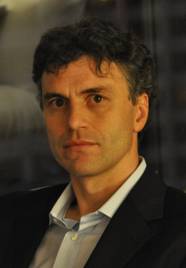 |
Roberto Sorrentino is a Professor at the University of Perugia, Italy. His research activities have been concerned with numerical methods and CAD techniques for passive microwave structures and with the analysis and design of microwave and millimeter-wave circuits and antennas. He is the author or co-author of more than 100 technical papers in international journals and 200 refereed conference papers and four books (J. Wiley, 2000, McGrawHill, 2006, 2007, J. Wiley 2010). Roberto Sorrentino is an IEEE Fellow (1990). He received the MTT-S Meritorious Service Award (1993), the IEEE Third Millennium Medal (2000), and the Distinguished Educator Award from IEEE MTT-S (2004). In 1998 he was among the founders of the European Microwave Association and its first President from 1998 to 2009. |
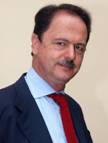 |
Didier Pribat graduated from Grenoble University (INPG) and from Orsay University, France. He worked for 24 years (1978-2002) within the Central Research Laboratory (LCR) of Thomson-CSF (now Thales Research & Technology) on various subjects of materials science and semiconductor technologies such as laser annealing and crystallization, heteroepitaxy, silicon-on-insulators, solid electrolytes, III-V materials and polycrystalline semiconductors. In 1991 he founded a new laboratory within Thomson-CSF’s Central Labs, in order to develop Large Area Electronics applications for displays, RFID, flat antennas… He joined CNRS (Centre National de la Recherche Scientifique, the French National Center for Scientific Research) / Ecole Polytechnique in 2002 and started there an activity on carbon nanotubes and semiconductor nanowires for molecular electronics and field emission applications. In 2003, he set up a common research team between Thales Research & Technology, CNRS and Ecole Polytechnique (now 25 persons), with the aim of studying electronics applications of nanostructures, such as carbon nanotubes, semiconductor nanowires and more recently graphene. D. Pribat has been Director of the Technology Transfer Office of Ecole Polytechnique (2003-2009) and is expert to the French Ministry of Research (ANR), the EC in Brussels (from Esprit to FP6) and the EPSRC (London). Since September 2009, D. Pribat holds a full time professor position in Sungkyunkwan University, Suwon, South Korea, participating in a World Class University program. He started a new lab there and he is now involved in various research projects concerning solar cells, batteries and supercapacitors. D. Pribat has published more than 160 scientific papers in peer reviewed journals and presented more than 60 invited talks in international conferences. He is also co-author of 3 book chapters and author or co-author of more than 55 patents. |
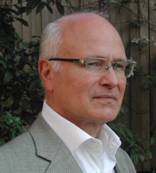 |
Dr. Georg Obermaier, Karlsruhe Institute of Technology (KIT) Georg Obermaier graduated with a diploma degree in technology‐ and management‐oriented business administration from the Technical University of Munich. In addition, he received a doctoral degree in mechanical engineering from the University of Karlsruhe. His PhD thesis was in the field of technology transfer and cooperation management. Since 2009, he is working at the Karlsruhe Institute of Technology as a program manager for the Karlsruhe Nano Micro Facility (KNMF) – a large‐scale open innovation facility for multimaterial micro and nanotechnologies. |
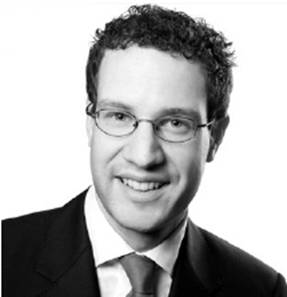 |
Dr. Afshin Ziaei received the B.S. degree in Electronics Engineering from the University of Paris XI (Orsay) in 1997 and the M.S. degree in Electronics and Microwaves Engineering from the University of Paris VI (Jussieu) in 1998 and he received Ph.D. degree in microwave from the Department of Electronics Engineering at CNRS-IEMN (Institut d'Electronique et de Microélectronique et de Nanotechnologie) in 2001. He joined the research engineer at Thales Research & Technology, France, in 1999. His research interests include the development, design, fabrication, and characterization of RF MEMS (Micro Electro Mechanical Systems) components such as mechanical switches, transmission lines, etc. He was involved or in charge of many French or European Projects (such as ARHMS, SATURNE, NANOPACK (coordinator of projects), ARESSAT, MEMS2, PEA MEMS, FLAME). He is a member of IEEE. |
|
|
|

